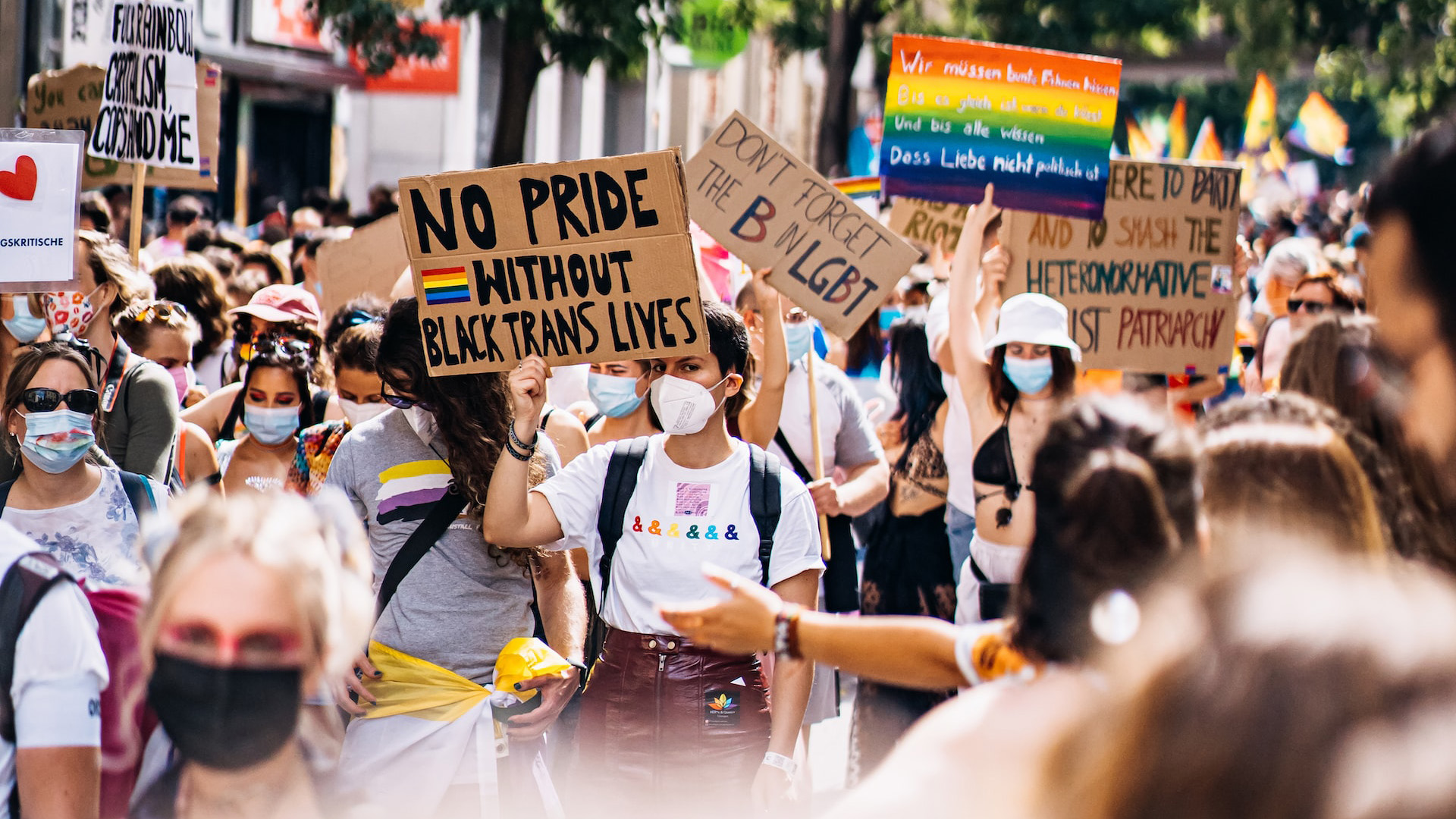Amidst claims of discrimination in the LGBTQIA+ community, what are activists doing to amplify marginalised queer voices?
It was dark outside, but the moment Vaneet Mehta set foot into the bar, neon lights flashed in his eyes and revealed a completely new environment; one that he wanted to be part of. Sweaty men were pushing to order cheap booze at the counters, some struggling with phone numbers sloppily punched into their mobile phones, waiting for a call-back and a potential date.
Seconds before Vaneet could be part of this, he found himself surrounded by bouncers giving him suspicious stares. The guards started asking him questions such as “Do you know what this bar is for?” It didn’t take long for him to realise that he was the only brown man in a predominantly white bar, which is why the security thought he didn’t belong there.
“You go to LGBTQIA+ spaces hoping that you’re going to find people like you. But these spaces are very white and are gay dominated,” says Vaneet, a bisexual activist who has had similar experiences of racism on dating apps like Grindr as well.
“You’d think that they understand other marginalisation and try their best to accept you. But instead, they make you feel like you aren’t one of them, that you don’t belong there.”
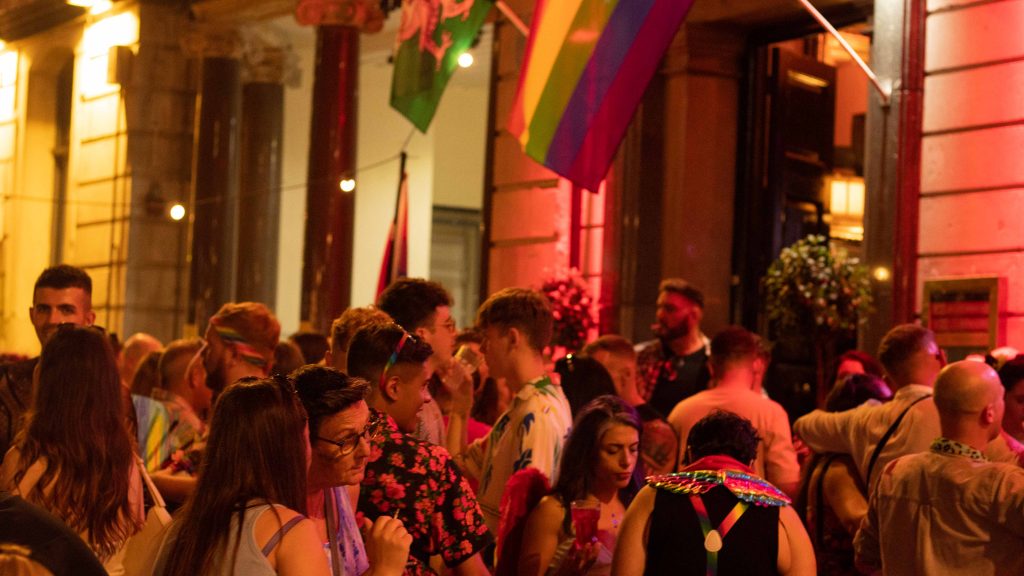
In his early years of coming out, Vaneet realised that the LGBTQIA+ community wasn’t built for people like him. He dealt with abuse for not looking masculine enough as his hair fell below his shoulders. Every dating app he opened, the words “no Blacks, no Asians” flashed in his face, typed out in bold, capital letters. These experiences deterred him from attending queer spaces.
This sentiment echoes within the wider LGBTQIA+ community across Britain. A Stonewall report reveals that a third of queer people avoid being part of the gay scene as these spaces are unwelcoming towards people of colour, or POC. More than half of POC are subject to microaggressions and even receive hostile reactions when they call out people for racism.
Vaneet has encountered such people and feels that they are not willing to unlearn racism or accept the fact that they aren’t perfect. He says, “They will get defensive and be like, ‘Well, I’m not racist’. We are not saying that they are a terrible person. We are saying that they need to learn from that and do better.”
The queer community needs to listen to a wider variety of voices, according to historian Dr Justin Bengry. “Some LGBTQIA+ people are more marginalised than others,” he says.
“While some of us who are white, cis, male have more privilege, many trans and non-binary people, women, queer people of colour, and those that are economically marginalised face particular challenges both within our community and outside of it. It’s much better to listen to their voices to understand their exclusion.”
This exclusion from within and outside the queer community is also known as double discrimination, a common experience for gay Muslims like Khakan Qureshi.
We’re already a minority within the minority. Since when did the oppressed become the oppressor?
Khakan Qureshi, Stonewall Diversity Role Model
“Being an avid pro-gay Muslim, you face discrimination from both angles – Islamophobia from the mainstream community, and homophobia from the Muslim community,” says Khakan, a Stonewall Diversity Role Model, who often experienced racially offensive slurs in LGBTQIA+ venues.
Khakan has faced many troubling encounters due to the colour of his skin and his religion. “People either looked at me in a way that they found me attractive or stepped away because of the colour of my skin,” he says. “Some people actually vocalised their preference to say I don’t pick up people like you, I don’t do Pakis.”
While LGBTQIA+ people face problems due to their skin colour and religion, many also face barriers due to their gender identity. This is particularly an issue for non-binary people, who reject the traditional categorisation of ‘male’ or ‘female’ and don’t fall directly within the gender binary.
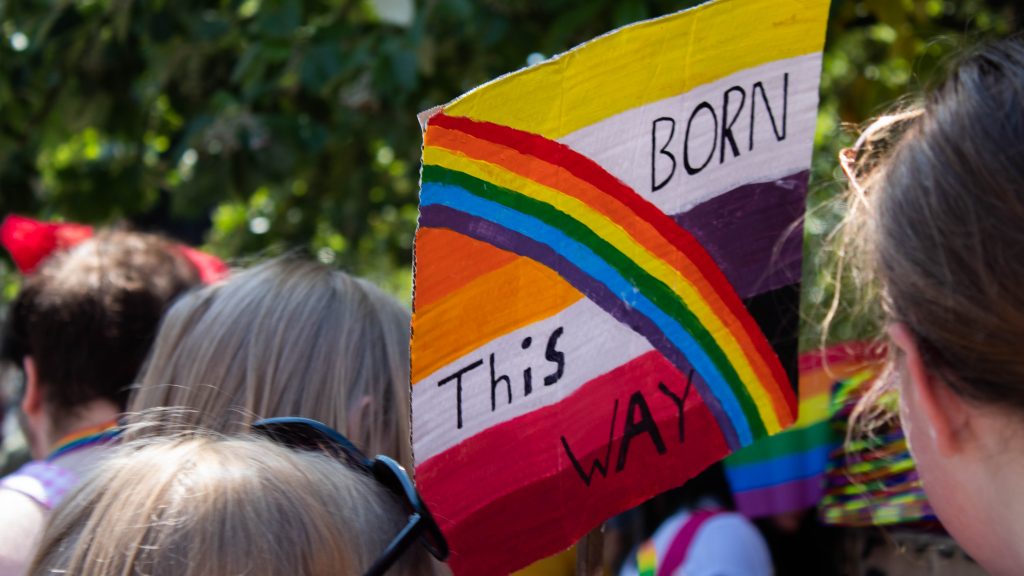
Oscar Hoyle, a non-binary activist and educator, deals with exclusion due to their identity almost on a daily basis, so much that they have gotten used to it. “It’s very rare that people get my pronouns right,” says Oscar. “It gets quite frustrating, especially when I work in different LGBTQIA+ organisations. It makes me feel that I’m not non-binary enough.”
A common assumption among people is that non-binary people are supposed to look androgynous and dress neutral, otherwise people believe that they are “faking it”. This, as Oscar puts it, the “biggest barrier” they’ve had to face so far.
“It’s very rare that I actually get identified as a non-binary person, because I don’t look androgynous,” Oscar says, adding that even though they are not afraid to have a difficult conversation and call somebody out, it becomes quite exhausting to do it on a daily basis. “There’s an element of my identity that just isn’t being respected.”
On a wider scale, Oscar feels that some people assume that everyone has equal rights within the LGBTQIA+ community and aren’t ready to accept that there are still people who aren’t as privileged as them. “It means that the more marginalised and underrepresented people within our community are left behind,” they say.
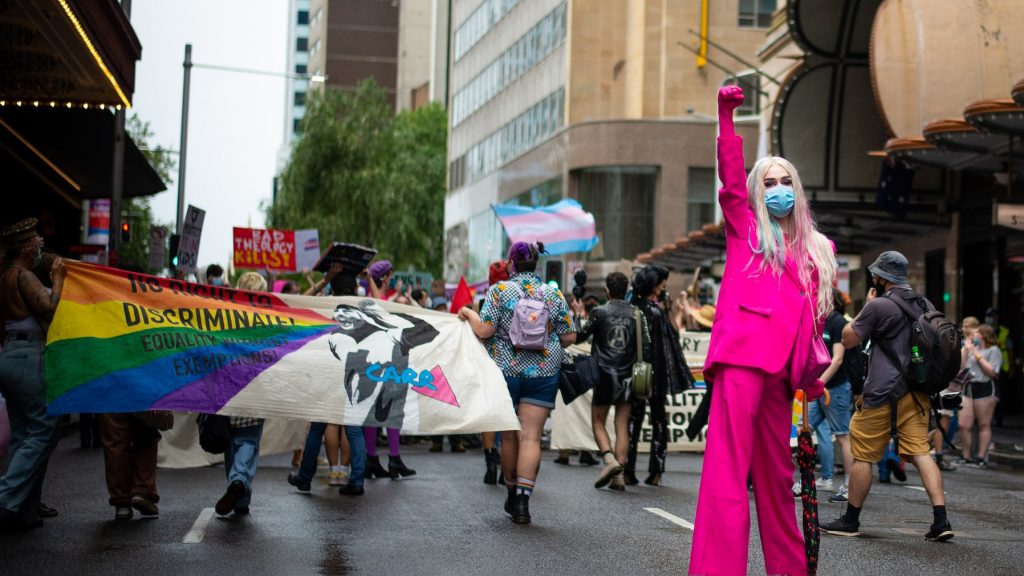
Instances like these lead to divisiveness within the LGBTQIA+ community, according to Khakan, who feels that queer people are still facing the same prejudice he faced decades ago. “People are still being fetishised or ostracised. It seems to be quite rampant,” he says. “That’s a shame because I thought that we would have been much more accepting now.”
Very few mainstream organisations are heading in the right direction, according to Vaneet. Stonewall, Europe’s largest LGBTQIA+ rights organisation started campaigning for trans equality rights only in 2015, and apologised for failing to do it in the past.
In a foreword to a report they published, Stonewall’s then chief executive Ruth Hunt wrote, “We recognise the impact of mistakes we have made in the past. We are aware that we have missed opportunities to open up this conversation far sooner. We apologise to trans people for the harm that we have caused.”
While Stonewall is working towards a more inclusive organisation, many others have a long way to go. In 2021, Pride in London – one of the largest Pride events in the world, faced allegations of racism and bullying towards their ethnic minority volunteers, which led their senior most bisexual black member Rhammel Afflick to resign.
According to him, many LGBTQIA+ organisations fail to address systemic issues that affect marginalised members of the community. They are rather performative in nature, which is why they need to be challenged.
“We simply cannot afford to leave anyone behind while people experience hostility – or, at best, indifference – towards their plight. We can’t just continue on the same course and expect different outcomes,” Rhammel writes.
To bridge this divide, Khakan asks for all queer people to unite. “If we can’t make progress within ourselves, how on earth can we expect the heterosexual community to open doors for us as well?” he says. “We’re already a minority within the minority. Since when did the oppressed become the oppressor?”
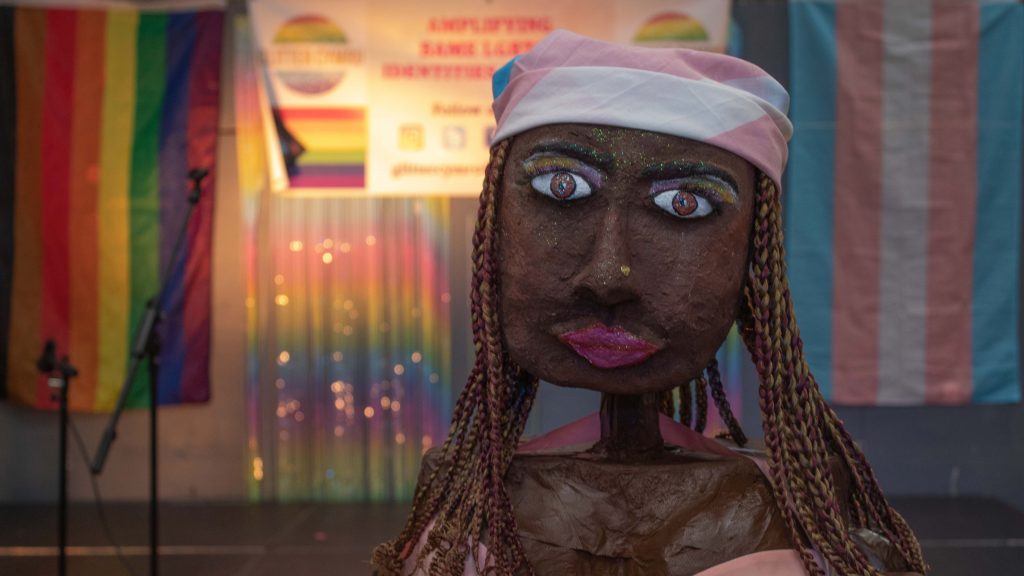
BrwnGirlVenting (Twitter handle), a Queer Sikh activist, feels that a lot of people don’t think about intersectionality, which is why many people feel isolated and misunderstood. This, according to her, is what organisations need to tackle in order to become more inclusive.
“It is about recognising that we all have these different experiences and identities that live together. It’s about breaking barriers and being the visibility you want to see in the world,” she says. “As long as we’re working towards it, that is all that matters.”
On the sidelines, there seems to be a real pushback against mainstream LGBTQIA+ venues to create spaces for all those who don’t fit the typical stereotype of cis, white, and gay. Grassroots organisations and trying to bridge the gap between LGBTQIA+ spaces and people by recognising the intersectionality that exists within the community.
Alternative Pride events such as UK Black Pride, Bi Pride UK, Trans Pride, and Glitter Pride are bringing marginalised LGBTQIA+ people to the spotlight through inclusive events and active representation. Recently, UK Black Pride became the world’s largest ever with a turnout of about 25000 people coming together to celebrate diverse ethnic identities across the country.
Vaneet feels that these projects are trying to be as inclusive as possible by including disabled people, trans and non-binary people, bisexuals and pansexuals, POC, intersex and asexual people, lesbians and gays. According to him, they are creating a diverse space where everyone can find themselves represented.
Events like UK Black Pride that focus on the queer minority community are the way forward as breaking into white-dominated spaces can be challenging, says BrwnGirlVenting. “It would be nice to have a seat at the popular table. But for now, building your own space is a very good way to guarantee you’ve got a safe space,” she says.
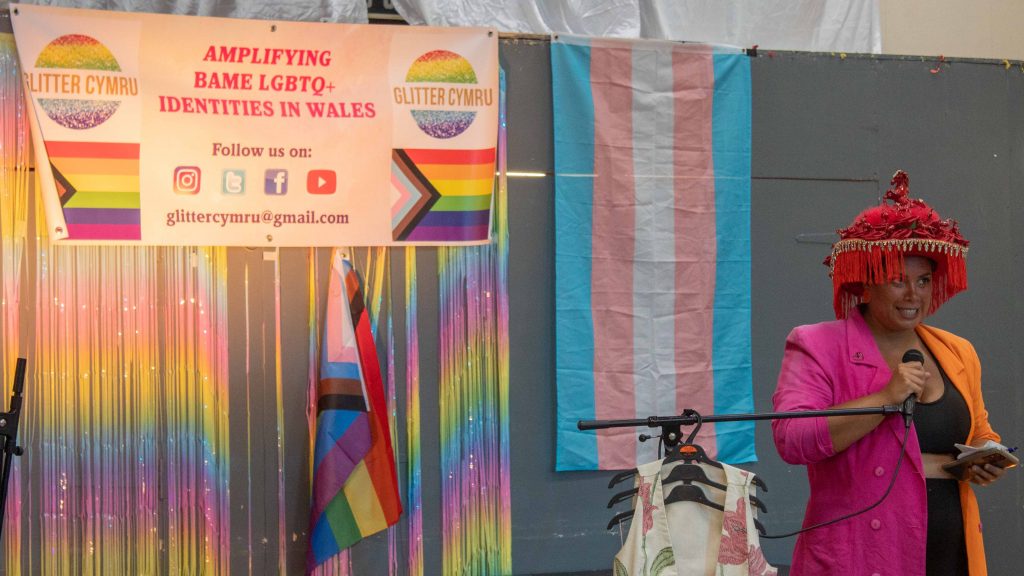
Alternatively, if people are not able to build such spaces that are ‘everything to everyone’, they can always ‘pick and choose’ – a strategy that Vaneet follows to have a good experience in queer spaces.
“I often take each space for what it can give me and focus on that,” he says. “I frequent more Asian LGBTQ+ spaces or POC LGBTQ+ spaces. And if those aren’t really accepting of bi people, then I can make up for that by having bi spaces.”
This way, even though Vaneet does not get to be in a space where he can talk about everything at once, he has a space where he gets to bring a part of himself and then be vocal about that in its entirety.
For him, this is a way of finding people he can socialise with. “I collect people in these spaces and go, ‘those are the good ones, the ones I want to spend my time with.’ Those are the ones I hang out with when I enter those spaces,” he says.
Being part of the LGBTQIA+ community has had its pros and cons for him. It helped him meet similar people, feel accepted, and be able to accept himself.
However, it also made him realise how divisive the community is. “It’s made me realise how many problems there are in the community, who it’s actually for, and how that often doesn’t involve me,” he says. “But then it’s allowed me to take that journey of finding places that do involve me, where I can be myself, where I can exist a lot more comfortably.”
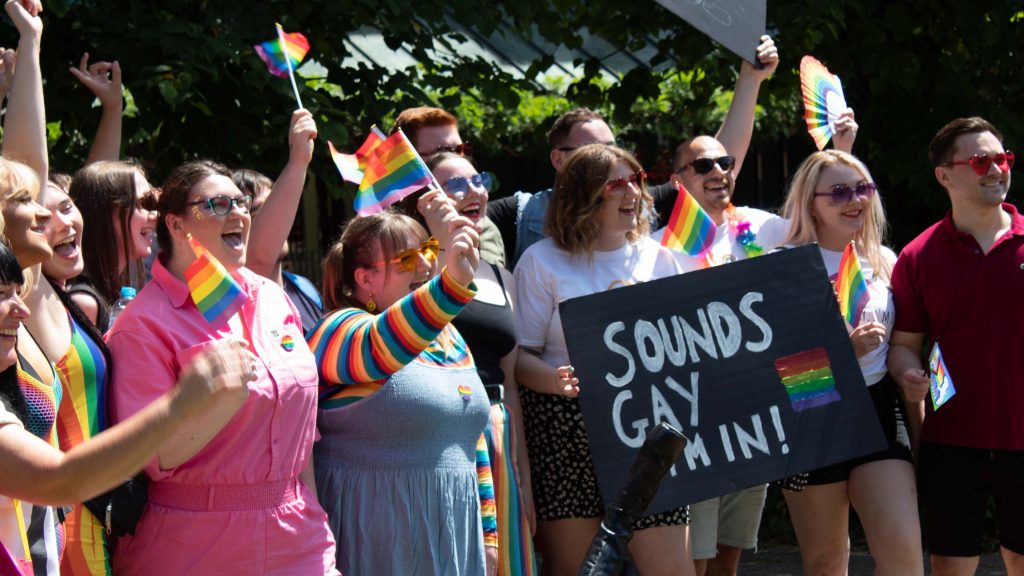
*Oscar uses they/them pronouns
